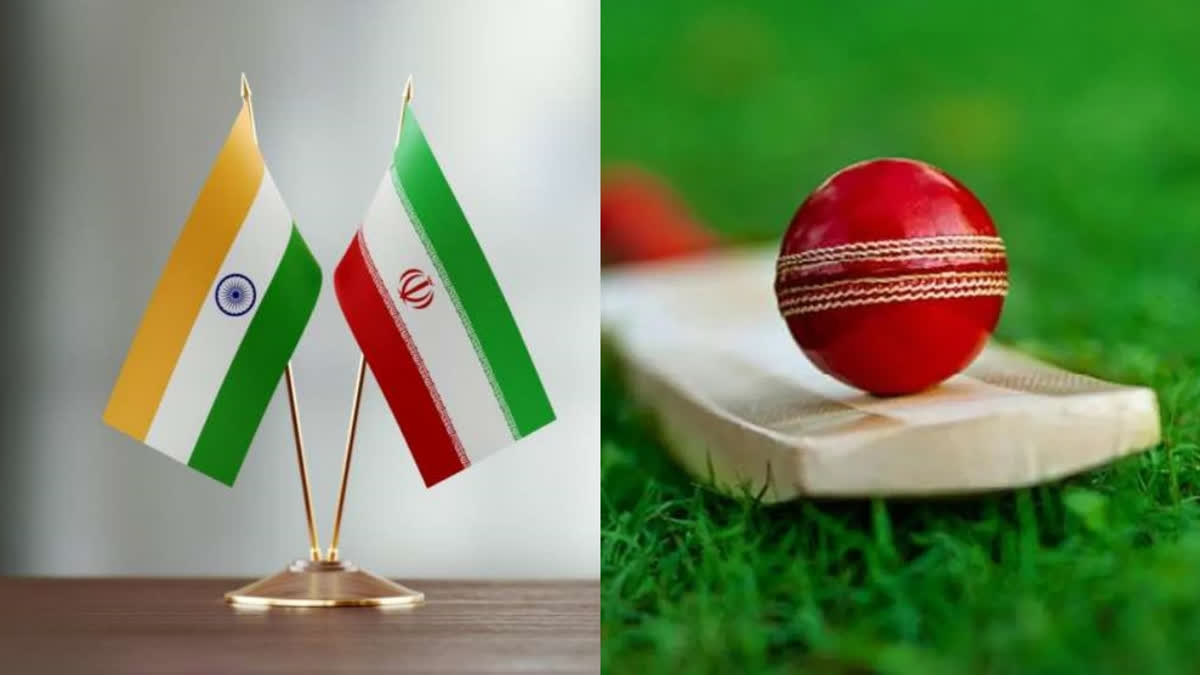New Delhi: After Iran's under-19 cricket coach Asghar Ali Raeisi requested India’s help in constructing the first cricket stadium at Chabahar in his country, India has got yet another opportunity to display its soft power diplomacy in West Asia.
Raeisi also sought the help of the Board of Control for Cricket in India (BCCI) for training Iranian cricketers and umpires. “Iranian players have the talent to play good cricket internationally,” he was quoted as saying. “But we fail to train them due to lack of infrastructure. I wanted India to help us to build the stadium so Iranian players can prove their mettle in the world.”
Raeisi said that due to lack of infrastructure, there are difficulties in training Iranian players and umpires. Iranian players, he said, want to play in the Indian Premier League (IPL) and they draw inspiration from Indian players like M.S. Dhoni and Virat Kohli. Iran became an affiliate member of the International Cricket Council (ICC) in 2003 and an associate member in 2017.
In April 2018, the ICC decided to grant full Twenty20 International (T20I) status to all its members. Therefore, all Twenty20 matches played between Iran and other ICC members after January 1, 2019, have been recognized as official T20Is. "The Iran coach’s request sends multiple signals,” R. Dayakar, former Indian Ambassador to Iraq and Jordan who also served in the West Asia desk of the Ministry of External Affairs, told ETV Bharat.
“If India offers help in developing cricket in Iran, it will meet the aspirations of the youth in that country. It will also help boost people-to-people ties.” India and Iran share a millennia-long history of interactions. The contemporary relations between the two countries are marked by high-level exchanges, commercial cooperation, connectivity paradigm and cultural and people-to-people ties.
Iran is of strategic importance for India because of its location between the Persian Gulf and the Caspian Sea. Iran was one of the biggest oil suppliers to India. But New Delhi had to stop oil imports from Iran after May 2019 following the revocation of the Iran nuclear deal which impacted India’s energy security.
Other snags in New Delhi-Tehran ties in recent times have been India’s close relations with Israel and Iran signing a 25-year strategic partnership with China. Also, India’s growing ties with Gulf countries like Saudi Arabia and the United Arab Emirates (UAE) were seen as a zero-sum game because of these countries’ rivalry with Iran.
However, relations between the Gulf nations and Tehran have been on the upswing recently after Ebrahim Raisi became President of Iran in 2021. Raisi has adopted an Asia-centric foreign policy with India as one of the focus countries. He has visited Oman, Qatar and the UAE since assuming power. Syria and Iraq are too slowly becoming positively inclined towards Iran.
There is also a rebalancing of India’s ties with West Asia as is evident from Prime Minister Narendra Modi’s recent visits to Egypt and the UAE and the visit of Muhammad bin Abdul Karim Issa, Secretary-General of the Muslim World League, to India earlier this month. New Delhi sees West Asia as an extended neighbourhood and this holds great potential for bolstering India-Iran ties.
Also read: Pakistan, Iran agree to tackle common threat of militancy through 'intelligence sharing'
What will be of great interest to India is coach Raeisi’s request to India to help build the cricket stadium in Chabahar, a port city that is of strategic importance to India. The Chabahar Free Trade Industrial Zone intends to establish a set of sports, service, recreational, residential and welfare uses under the title of a sports tourist village. Land totalling 10 hectares has been allotted for a 4,000-seat cricket stadium.
Chabhar is a crucial link in the International North-South Transport Corridor (INSTC). With land connectivity via Pakistan and Afghanistan being ruled out for obvious reasons, India is banking on the INSTC for access to Central Asia. The Chabahar port will help link the Indian Ocean and the Persian Gulf with the Caspian Sea via Iran and St Petersburg.
This is why boosting people-to-people ties despite the constraints in economic relations is important for the terms of engagement between New Delhi and Tehran. And cricket diplomacy can play an important role here. “The Iran coach approaching India shows that ties between the two countries are beyond narrow interests,” Ambassador Dayakar said. “Cricket is soft power diplomacy. It means entertainment and revenue via sports.”
India has already helped develop cricket in Afghanistan. Former Indian players Lalchand Rajput and Manoj Prabhakar have served as coach and bowling coach respectively to the Afghan national cricket team. The sport has become a unifier between various factions in what was a war-torn nation. Now, India has got another chance to display its cricketing diplomacy following the request from the Iranian cricket coach. “India should react positively to the Iranian coach’s request,” Dayakar said.



